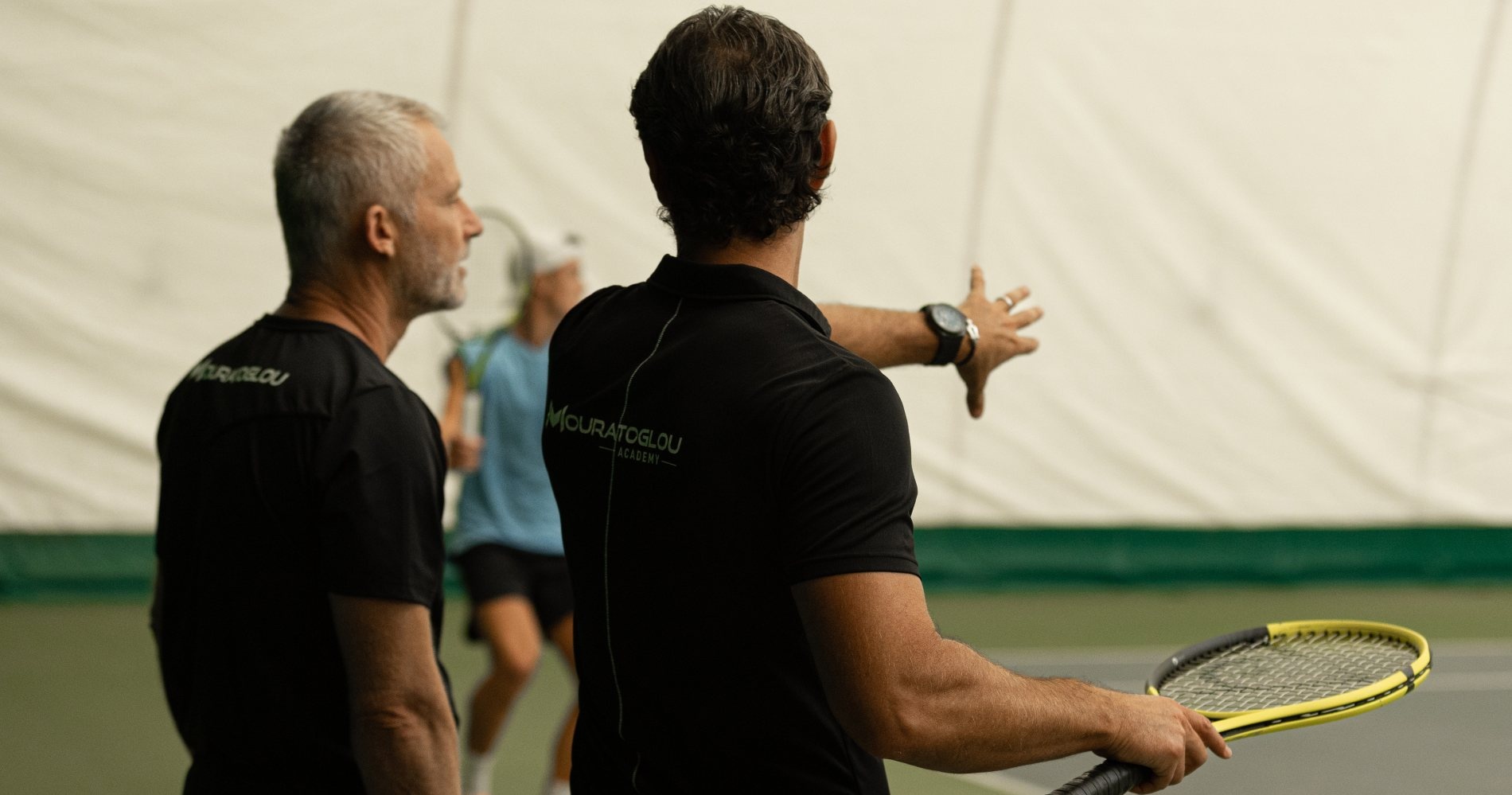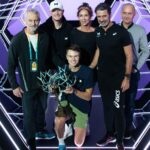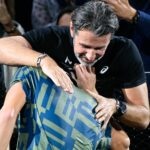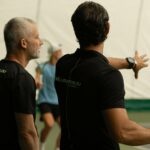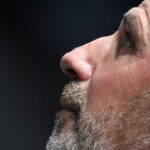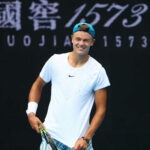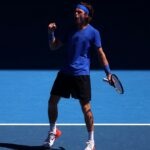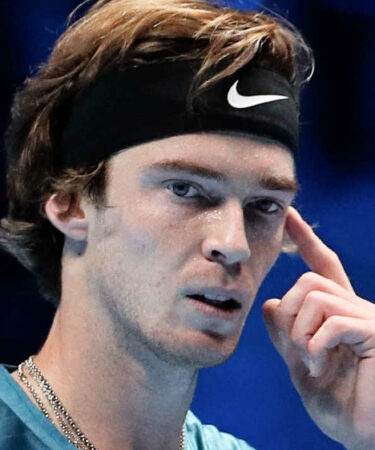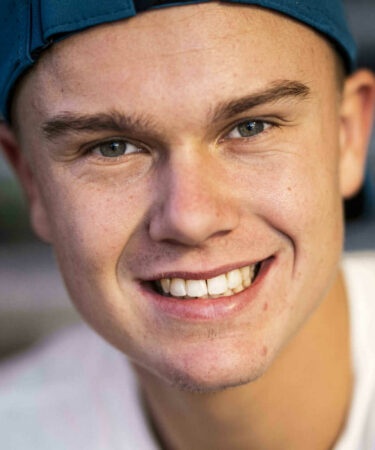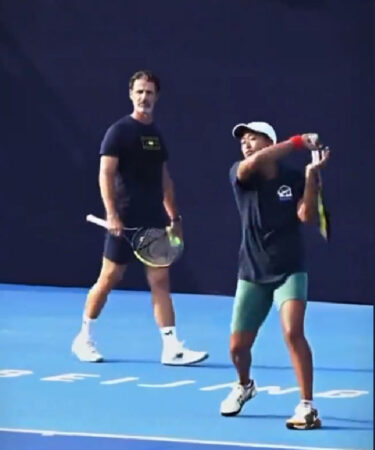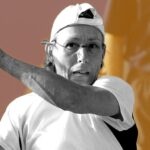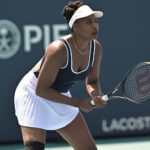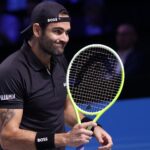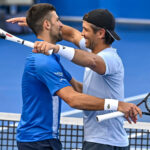Mouratoglou on Rune’s Australian Open : “Not yet at the point to win a Grand Slam but maybe not so far”
Patrick Mouratoglou reflects on Holger Rune’s fine – but ultimately disappointing – run at the Australian Open and looks to the future
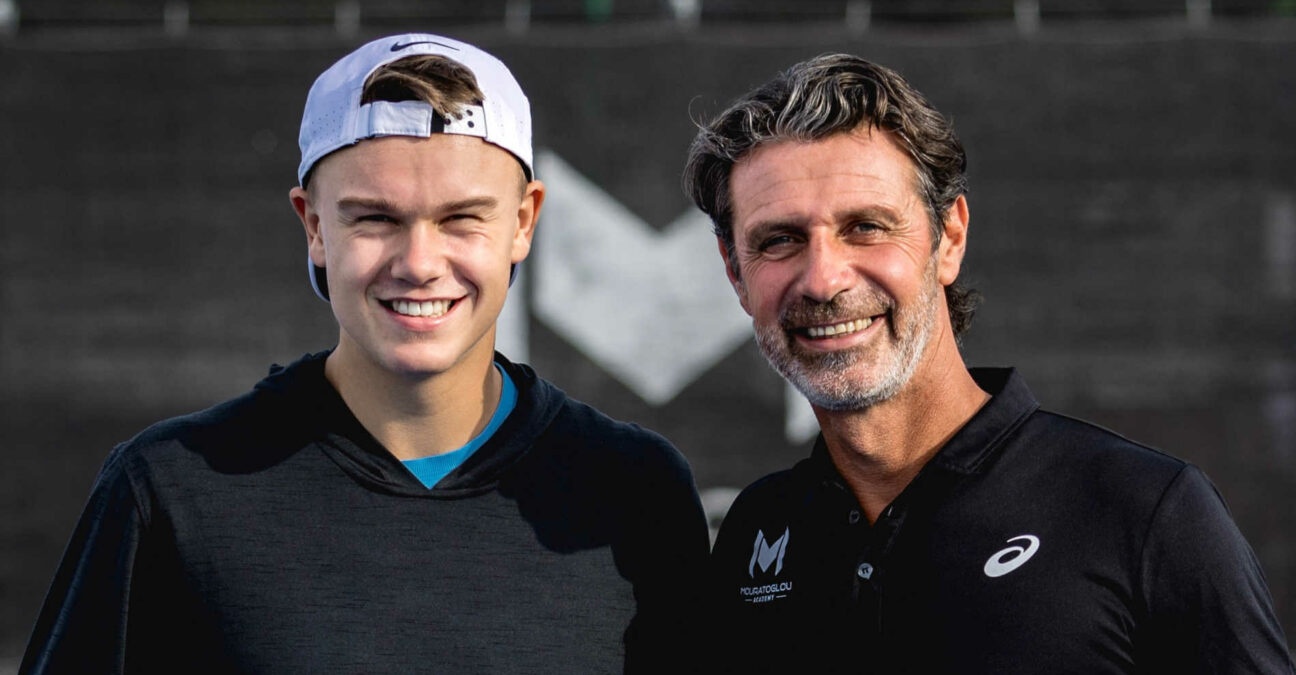 Holger Rune and Patrick Mouratoglou, Oct. 12, 2022 | © Mouratoglou Academy
Holger Rune and Patrick Mouratoglou, Oct. 12, 2022 | © Mouratoglou Academy
This type of match (against Rublev) is not a random experience. What emotional state is in Holger after this event ?
Holger (Rune) is very disappointed and angry. I always hear questions from the press asking me, ‘What do you do to help your player to not be angry anymore and overcome that moment?’ I always answer – and it’s the case in Holger’s case – it’s a good thing to be angry, a good thing to be disappointed and sad after a loss, it’s a great thing. It’s a great thing because it shows that the player cares.
The question shouldn’t be about if they’re angry or disappointed, because they are, but the question should be what do I do with this anger and this disappointment, this is the key. You have two ways to redirect this anger. You can redirect it to people, say, ‘It’s not my fault, it’s somebody else’s’; you can redirect it to you in an unproductive way, ‘I’m not good’ or ‘I didn’t play well’: it doesn’t help. Or you can use these feelings in a way that will make you better.
How do you do that ?
A lot of things happen in a life or in a career, positive things, negative ones, wins, losses. The question is always ‘what do I do with that?’ and I think that the champions are the ones who are able in every circumstance to take something out of it. When you win, you get some more confidence, some more certainty about what you’re doing, and it’s going to help you to do it even better and when you lose you get incredible feedback but you have to look at it with clear eyes and ask yourself two questions: ‘What could or should I have done to win the match?’ and ‘If I play this match tomorrow, what will I change to win it?’
The second one is that if I lost this match means that I have still have something, in my physical, my mental or my game that is not yet at the highest level. What is the gap between the player I am and the player I want to be that I need to fill? What should I progress on? This anger and this disappointment is also what put you back to work, it’s going to help you to next time take different decisions during the match and maybe better decisions because now that the match is done you have time to think about it. It’s extremely important to fuel this anger with constructive thoughts that are going to help you.
What are your takeaways on this big match against Rublev ?
After this match, I have four reactions. The first one is to remember where we were four months ago and where we are now. Four months ago, Holger was 30 in the world, had never won a major event before, he had won a 250 which was the biggest achievement in his young career. Four months after, he’s a top 10, he played three big tournaments in a row indoor, won two and made the final of the third one, he won against five top 10 players, he has beaten Carlos Alcaraz and Novak Djokovic in the final of a Masters 1000. He’s a different player with incredible improvements, this is credit to him and also to the team.
He improved a lot and we have to accept that he’s not yet at the point to win a Grand Slam but maybe not so far, that’s the first thing. The second thing is what could he have done in this match to win it and we have to address this. The third thing is what does he need to improve in the next weeks, months, to become a Grand Slam winner. And the fourth thing is what we, as a team could have done different in order for him to win that match that he lost. If we answer well these four questions, this loss will be extremely useful. If we don’t, this loss was unnecessary and will not help us for the future.
So even in the worst moment of somebody’s career, he can take positive decisions, useful decisions to improve. Whatever happens to you, positive or negative, you have to use it to move forward.
Why did Holger lose the match ?
He lost the match for several reasons. First of all, he was not able to achieve the game plan, and he didn’t go into the fight, he was playing shots, playing rallies, playing tennis, going for the mistakes of Andrey, going for drop shots, trying to hit winners on shots that were almost impossible to hit winners on, so he made mistakes. He was going for second serves at almost 200 km/h so he made double faults. He never got into the match until the fifth set, that’s the first thing. Why? I don’t know yet.
On the big moments he did not fully take responsibilities, he was too passive
Patrick Mouratoglou on Holger Rune
Second, on the big moments he did not fully take responsibilities, he was too passive, and he gave to his opponent the responsibility to miss and not taking the responsibility to build the point and hit a winner. These are the things he could have done better. These last weeks and months, he has done so much better in that, for me it’s a little setback but it’s not a big deal because when you are at one point and you go to the next one, it’s never a straight line, you progress and then you regress because you have setbacks and then you progress even more. This match in which he didn’t do it is a setback but he’s done it most of the matches he played in the past months which was a big improvement.
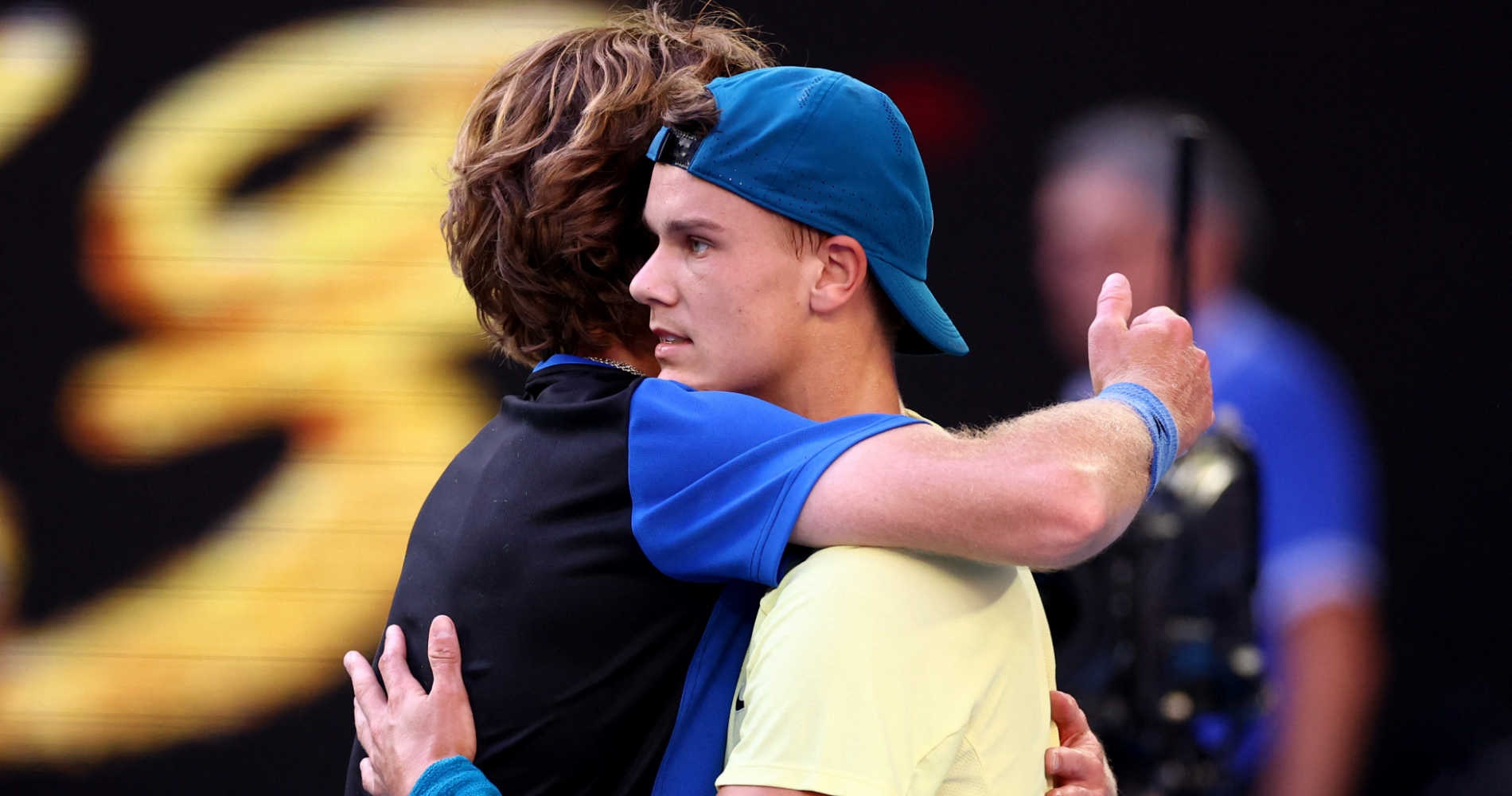
What about his emotion management, that was a key in his improvements last autumn ?
I think he managed emotionally the match much better than usual in terms of holding his emotions. There was a lot of emotions in that match, he played his first top 10 of the tournament, he was a match away from playing Novak (Djokovic) in the quarters, it would have been a big achievement for him, a big step, so there was a lot of emotions and in a way, he didn’t find his way into the match.
Is it still in the core of the process you have with him, to manage his emotions ?
I think that the management of the emotions is a core factor to reach a high level in any sports and for everyone. Now there are two levels, the first one is : I get emotional, I react strongly, which he did in the past and I think in that he progressed immensely. The second thing is: I get choked by emotions, do I do the right thing with my racquet, and in this, even the best players in the world sometimes don’t do it so it’s a constant fight, a constant learning process and I think in that he progressed also a lot but he’s not yet at the top of what he can achieve, there is still a way to go so that’s what we’re doing.
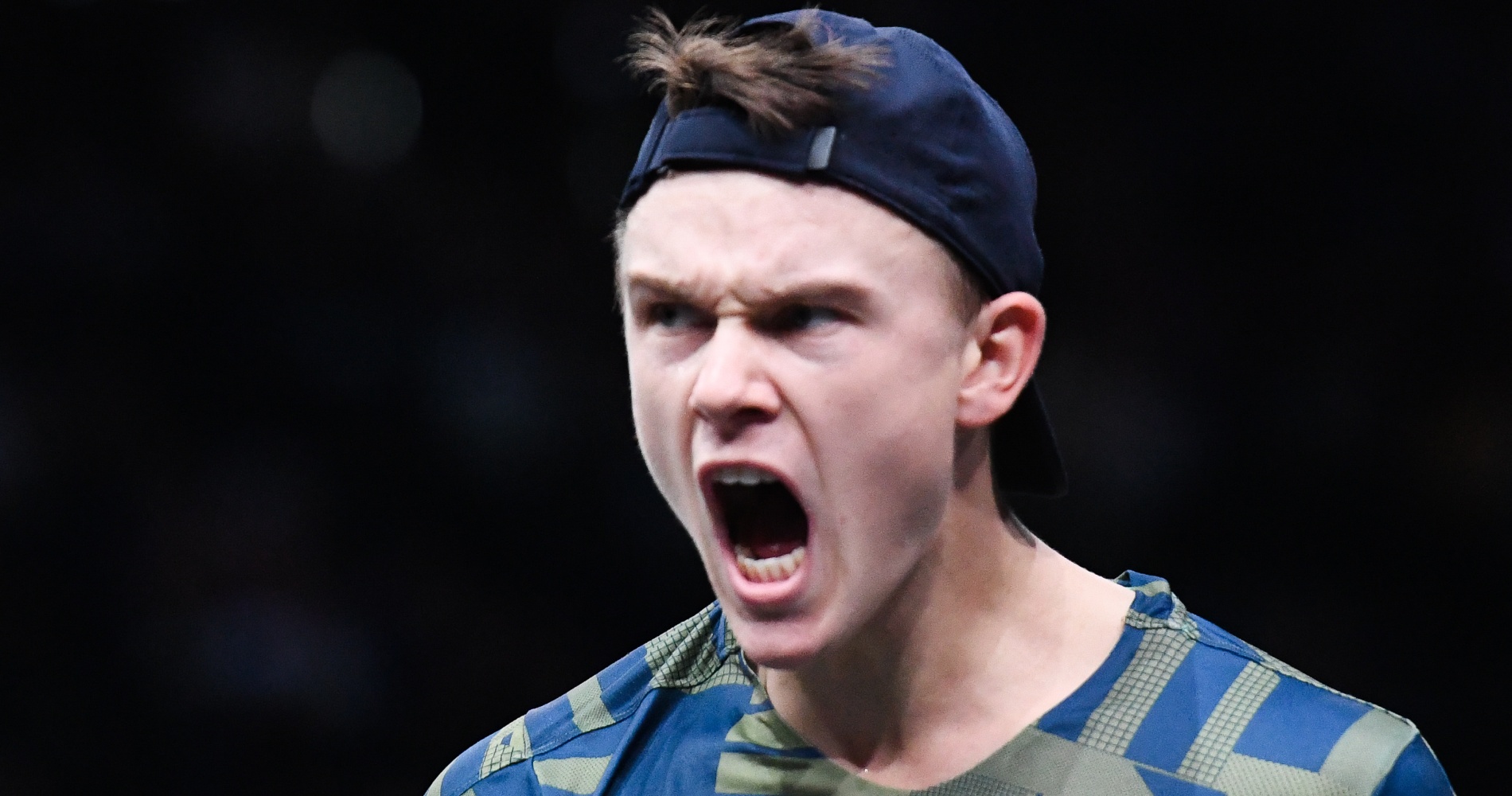
Does he feel it like anyone would do probably ?
Yes, of course he feels the pressure, but everyone does.The process to reach the top of the game is a process where one of the key factor is to deal with the pressure and he’s learning it. This type of pressure is new for him. It’s very new so he needs to feel it, learn to deal with it and I think he did quite well in general. In that match, if he had won and he was one point away from winning, we wouldn’t be having this discussion, we are having it just because he didn’t make that point.
He’s completely aware of the point that he can still make a big step in the rankings in the next months and he want to do it.
Patrick Mouratoglou on Holger Rune
So in that match he didn’t do it that well but he didn’t did that badly either. If you look at it, he came back, he served for the match, he was 5-0 up in the tiebreak, if the ball doesn’t roll on the net he’s 10-all in the tie-break and he can still win it. So being down, struggling in the first four sets, he found a way to reset and be much more competitive in the fifth. So I think he did well, but not well enough which is a big difference.
Is it part of your plan for this season?
He’s completely aware of the point that he can still make a big step in the rankings in the next months and he want to do it. He has high expectations, high goals so we have that in mind and the only way to do it is to perform in all the big events. He had an opportunity here, he didn’t do that bad because last year, he lost in the first round, this year he’s in the second week of a Grand Slam, one point away from the quarters.
The season is long, this was the first big event, he’s going to have many Masters 1000 and then another Grand Slam and then a second one so it’s the start of the season and I think it’s a good start for him, he played at his ranking level, which is a top 10 ranking, and it’s not easy. Of course, it’s disappointing because he could have done better and he knows it but I think he’s on the way.
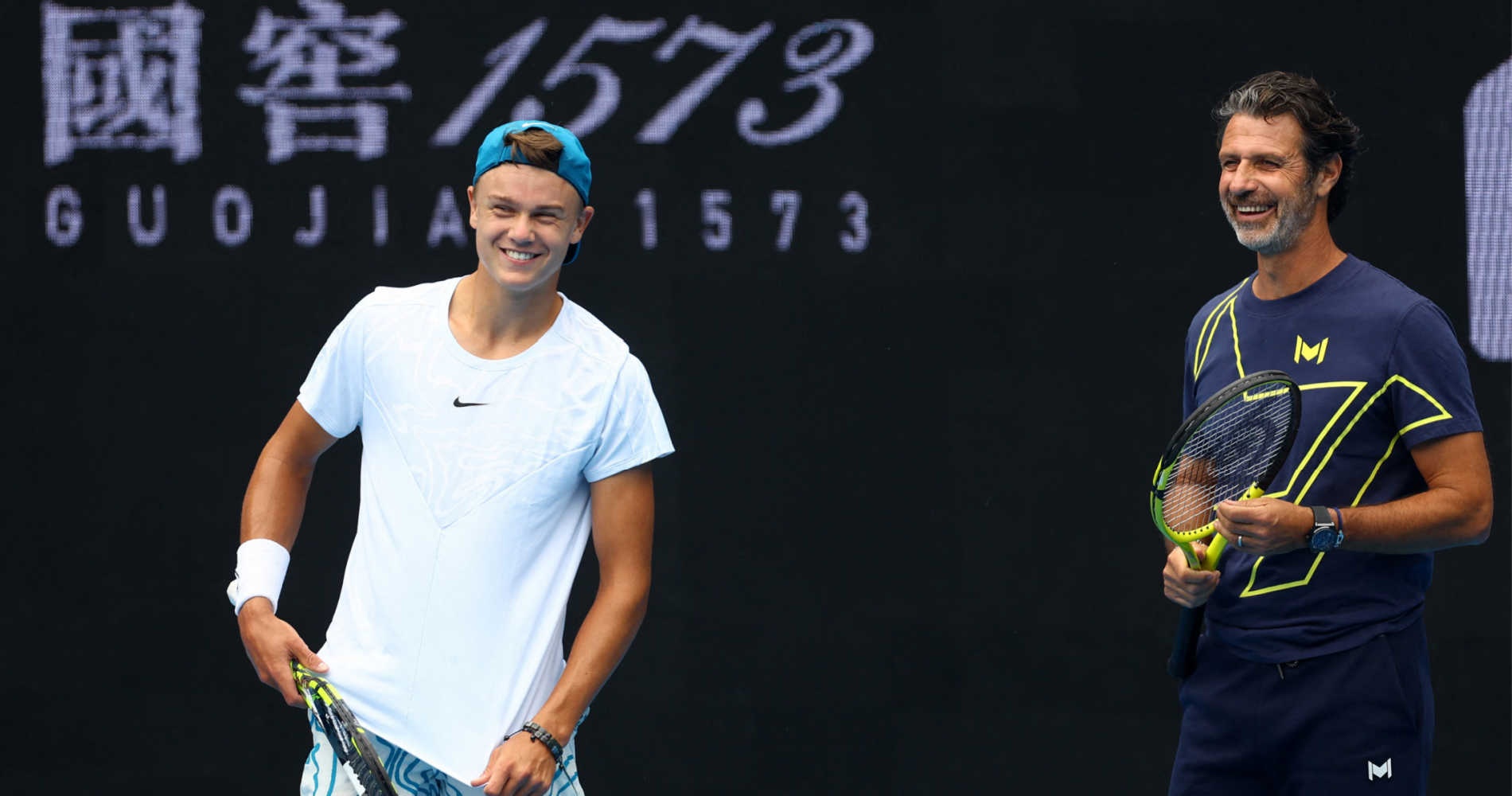
In terms of schedule, what is your decision as a team ?
Holger loves to play a lot of matches, he’s a great competitor, he loves to compete, that’s what he wants. So we are trying to find a balance between competing enough but not competing too much because at the ranking that he have now, if he wants to go higher and if he wants to perform in big events, he needs to be at the top of his form when he comes to them. In order to do that, he needs to compete enough but also to train enough and to be physically and mentally fresh. It’s a combination that we have to find and I think that we found quite a good one for this season. In February he’s going to play two tournaments, he has also the Davis Cup and then Indian Wells and Miami. On clay courts, he’s gonna play Monte-Carlo, of course, Munich, because he committed to play it and then two Masters 1000 that now last ten days and that’s it for the clay season, but it’s already a lot of matches potentially.
Four months in, how do you work together, you and Lars ?
We have a really good connection with Lars (Christensen), a good combination, I think that there are a lot of things he’s great at and there’s no point for me to take over those things that he did so well for so many years but I think that I bring my expertise of really high level for the preparation for big events. I help Holger in terms of mindset, in terms of how to process things, in terms of the way he needs to practise, what he has to put in the practices. I think we combine really well, when Lars feels that I have an input, he often asks me and I leave him his space where he already did great like elaborating the practice sessions around the needs of Holger that we discuss together.
We discuss the plans and the tactics together, he has his word when it’s his time, I have mine when it’s my time and I think that the things that he focuses on is what he’s the best at, and when we need expertise or experience of the really high level I take over, there is a lot of respect on both sides so it’s working really well.
